For New Zealand Music Month in 2019, arts website The Big Idea asked me to discover the string pullers, the influencers, the legends and the gritty wāhine toa who shape the New Zealand music industry. Their backstories range from managers and artists to mentoring the musicians of tomorrow. Their diversity of experience is united in the common theme that they are trailblazers who are dedicated to New Zealand music in all its forms, both at home and on the world stage.
Here are the thoughts of five powerhouses in New Zealand music. Together, we discussed their career highlights, their observations of being women in the music industry, where we are at and the compelling direction of where we should be going.
Victoria Blood
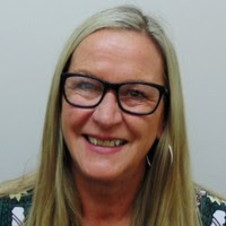
With 40 years’ experience in the music industry, mostly based in London, Blood brings an international perspective to New Zealand Music. After heading Marketing and Creative Development at BMG/RCA UK she co-founded the Byrne Blood Group, which became the pop hit-making company at the time, selling over 20 million records. Returning home to New Zealand in 2004, she had every intention to semi-retire but her discovery of Gin Wigmore soon put a stop to that.
Blood managed Wigmore until the singer moved to the United States in 2010; she was made chairperson of the New Zealand Music Commission in 2013. “New Zealand has an original spirit that comes from decades of isolation and even in the internet age, we’ve somehow managed to retain that,” she says.
As career highlights, Blood mentions “watching the Eurythmics perform at sunset on top of a chateau in France,” and weeping from side of stage as one of the bands she managed, Steps – of ‘5,6,7,8’ and ‘Tragedy’ fame – performed their first arena show in Belgium. And of course there were “lots of moments with Gin Wigmore”..
But as her star rose, Blood noticed that “sexual harassment in the music industry was never discussed and it was almost a daily occurrence. It wasn’t until years later that I thought maybe the stress and sacrifices in becoming one of the few senior women in the music industry in the UK at the time were linked. The fact that these discussions are now being had is a huge leap forward for the industry.”
Unfortunately, it remains a common problem both here and overseas that a lot of women suffer discrimination – particularly in the live music scene – and are not taken as seriously as their male counterparts. “You still hear we’ve got enough female singers, [or] there are too many women on the bill – and I never hear the reverse of that.” As a result, all the major New Zealand music organisations are looking at ways to improve gender equality.
To illustrate her point about discrimination, Blood recalls an encounter with a “traditional Australian man who was quite high up in the music sector”, when Gin Wigmore first broke across the Tasman. After Blood disagreed with something he said, he responded to the then almost 50-year-old, “Let me tell you, Missy, you’ve got three things going against you – first you’re a chick, second you’re a Kiwi and third you think you’ve done quite well overseas.”
For those looking to carve a career in the music industry, Blood has this advice to offer: “Be original, be courageous, work hard and follow your own tune.”
Jan Hellriegel
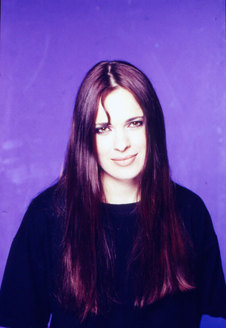
Jan Hellriegel is an artist who perfectly captures Victoria’s advice. A truly independent creative and entrepreneur, her decisions have been borne out of her desire for freedom. “I don’t like being told what to do and I like being in control of my own career,” she says. “That is one of the most important things for me as an artist; it makes me more free.”
Hellriegel observes that “women in music have been economically disadvantaged from the start. New Zealand on Air have stated that they give 20 percent of funding to women, because ‘women don’t apply’ – but why is this just coming out now? That is something worth exploring.
“Personally, I have figured a way through. It makes some of the rock’n’roll stories by men look tame in comparison to what women have to go through to get their music out there.
“The media have relatively ignored me over the last 10 years because I don’t fit in the box which is dictated to by statistics ... I think that is more what I am trying to say and often we all get boxed into things like ‘women of rock’ - we are not treated as individuals ... I am not here to be told how to act a certain way because statistically, that is how it’s done. I am here to bend statistics because that’s the job of the artist.”
In 2019, having independently released her fourth studio album Sportsman of the Year – A Suburban Philosophy (with an accompanying book and podcast) – Hellriegel has “gone around” the juggernaut that is the music industry. “It’s important for young women to see that while I’ve had a lot of support from people, it hasn’t come from the traditional music industry ... I am empowered, unbroken and strong; I’ve just gone and done it.”
When contemplating her career highlights, Hellriegel sees no differentiation. “For me, every album I’ve released has been a highlight, my business career is a highlight. You know what? Every bloody day is a highlight.” She laughs. “I’m so grateful for everything. I don’t aspire to be anywhere than where I am right now.”
For a long time, Hellriegel avoided using the label ‘artist’ to describe herself because she has always worked to sustain herself. But that has been shifting of late. “I’ve just been thinking recently that yes I am [an artist] and I think my creativity is untainted because I’ve done it for the sake of art, not the income. I think that is a real woman thing, we are tentative about saying we are good at things until we think we’re good enough ... we have to learn to blag it a bit more.”
Her desire to be “independent and empowered” was what led Hellriegel to learn the music business and startup Songbroker. “I didn’t want to wait around for people to give me permission. But on the way, I found out that I really like music publishing and I like supporting NZ musicians and getting their music heard – and currently, many are not.”
For Hellriegel, the current music system is unfair. “What we need is a really strong infrastructure for artists rather than the industry of the music industry. Business and strategy come from great ideas and the artists, not the other way round. Currently, the industry is not focused on artists and artist creativity because it is geared towards statistics. If you’re not earning royalties, you’re not being heard. I want the independent music structure in NZ to be healthy and thriving and at the moment it’s not.”
Lorraine Barry
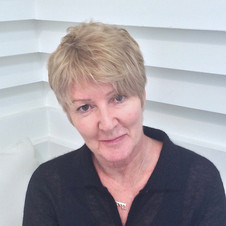
For 16 years, Lorraine Barry was the Director of International Marketing for Virgin Music Group in the UK. After moving to New Zealand, she set up Lorraine Barry Management, where she currently works with national icon Dave Dobbyn and the latest recipient of the Taite Music Prize, Avantdale Bowling Club.
Twenty years later, Barry reflects on some “shining highlights” in her career. “Working with Spice Girls was a whirlwind few years of global travel, unimaginable challenges, police escorts and new learning. I am still filled with love and admiration for Neneh Cherry, musician, style icon, mother, wife, grandmother, fabulous girlie. Ice T – and multiply it for Body Count – was my polar opposite yet we became a force of a team and unexpected friends on our promotional travels. I am honoured to have spent very private time with Albert Collins shortly before his death and was invited by John Lee Hooker to have cornflakes before beginning work … increasingly, I am involved in mentoring new artists and managers and love every minute of it.”
Comparing the New Zealand and United Kingdom music industries, Barry says, “The differences are decreasing now we are one big on-line connection ... in the years I’ve been here I’ve watched the upskilling, professionalism, creativity, competitiveness grow. On the downside a lot of musicians still ‘wing it’ and neglect the learning of the business: Knowledge can carry you so much further so it's important to take responsibility for your future … But it still amazes me today that New Zealand commercial radio stations add so few new tracks and then sit on the hits for months and months and months after release.”
As a woman in the music industry, she reflects, “There were many countries where I experienced inequality. I remember my first of many trips to Japan in the mid ’80s and all the girls were assistants and I taught the head of marketing how to make tea for us – then I went to the boardroom filled with men and led the meeting. Thankfully the ‘lot’ of the woman is improving there.”
But personally, discrimination was not something I even considered affected me.” Lorraine continues: “I was a journalist, then into the music industry, both considered male bastions, yet I never felt anything other than equal. My dad taught me to fish and paint a wall, hammer a nail, lay a carpet and I applied it to my career. I forged ahead without thinking about it. I was never held back, was strong enough to air opinion, challenge the majority, deliver results like any male counterpart. (Although being different to the corporate ‘suits’ or the ‘wide boys’ could sometimes offer advantage.)
“Of course, I have experienced sexism and now ageism, but they are not my problem, they are his ... If you have the skills and knowledge of a man then you are equal for a role.”
Ria Hall
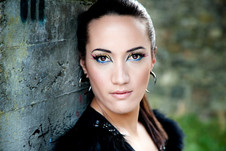
Ria Hall’s smoky, soulful voice has been front and centre since her self-titled EP was released in 2011 and her debut album Rules of Engagement in 2017. She describes them as “two of many career highlights – releasing work is so personal, scary and fulfilling all at the same time.”
Performing in both English and te reo Māori, Hall highlights the intersectional issue of being both a woman and Māori as a challenge in the music industry.
“There have definitely been challenges presented around how I am viewed and therefore how I am received. It seems to be a harder grind as a woman, but particularly harder as a brown woman. I'm of the opinion that the work should speak for itself as it carries its own mana – leave gender, racial bias and whatever hang-ups that certain sections of society have in the background of the background. Waaaaay back. I continue to notice that women are not equally represented in many spheres of the industry. Whether it be at an executive level, board level, or on the ground as producers. Adding to that, what really irritates me is the lack of female presence in major festival line-ups across the country. This is unacceptable and needs to change. Like, yesterday.”
Like Hellriegel, Hall notices the flaws in the music sector and calls for more teamwork and connectivity. “It would be great if our leading agencies collaborate more frequently and become more streamlined and accessible!”
Savina Fountain
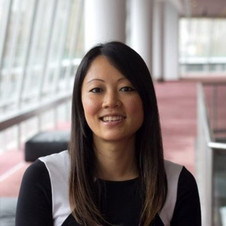
It seems that Savina Fountain has been everywhere in the music sector except the stage. This wealth of experience has led her to create the IGNITE programme, which she describes as a free industry-specific youth training programme to foster the next generation of the music sector. “The graduates from the programme are out there in the industry working and developing new initiatives and shows and I’m immensely proud to watch their progress,” she says. As far as her career highlights are concerned, “some of the big stadium shows I was involved in – such as the three Adele concerts at Mt Smart – obviously had [their] wow moments but it really doesn’t beat the warmth I feel knowing I had a part to play in the growth of a young creative’s career!”
Over her 16-year career, Fountain has seen the professionalism of New Zealand artists reach new heights. “It’s really incredible and it’s amazing to witness the major milestones that they reach these days on the international landscape. We are certainly punching way above our weight even though we are physically isolated at our corner of the world.”
Unfortunately, Fountain has also witnessed the decline of live venues and shows. “Gone are the days of scouting for bands hopping from venue to venue – most artists are not discovered this way anymore and there’s certainly the nostalgia aspect that I miss a lot! I think it’s really important to have a thriving local scene at all levels and in all regions throughout the country and make it part of our culture to support our homegrown emerging talent and local venues.”
Afterword
Earlier this year, I openly cried at a gig. That in itself is not a particularly remarkable event. Despite gig-going being a large part of my life for the last 15 years, the thrill, intensity and interconnectedness unique to each performance can still render me weepy.
But this time, the reasoning was completely different. For the first time ever at a live performance, I found myself completely surrounded by women and non-binary artists. From the sound desk to the stage, security to the crowd, we were in the majority. Given that this was Milk and Honey Festival – a spectacular celebration of New Zealand women in the music industry – it was to be expected. But I wasn’t prepared for the experience of it.
The sense of pride and joy in seeing wāhine toa excelling, of seeing all facets of womanhood and gender express themselves freely and without judgement, the feeling of being in the majority felt truly overwhelming.
It shouldn’t be a noteworthy experience. Nor should it be niche. Sadly we’ve got a long way to go before that kind of night becomes mundane. Until it is, we need to shout out, celebrate, empower, and listen to women in Aotearoa who are contributing to our music scene.
--
Links
NZ On Air: Keeping watch diversity content creators
--
First published in May 2019 as “Five Powerhouses of the Industry” at the New Zealand arts website The Big Idea. Reprinted with their permission. Thanks also to Kate Powell, @Kapowe65